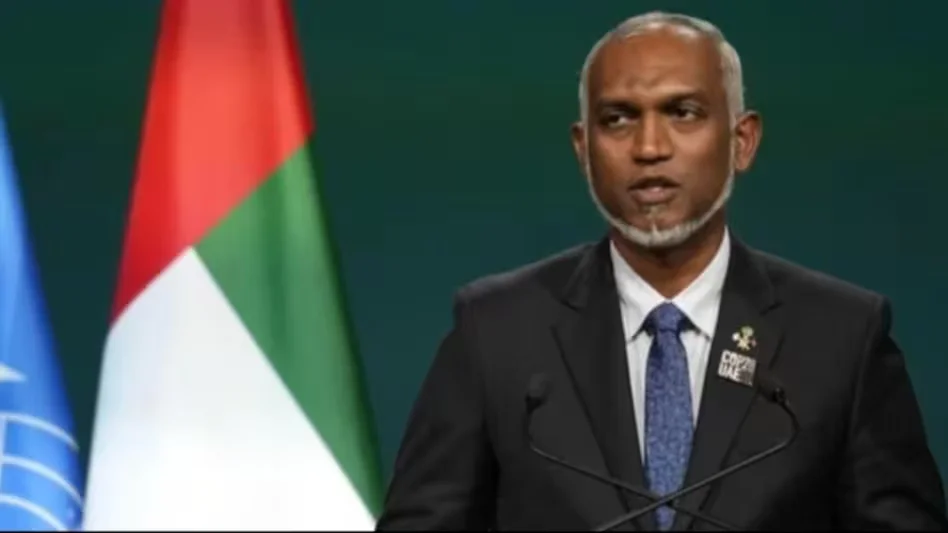Maldivian President Mohamed Muizzu‘s recent visit to China has taken an unexpected turn as he appeals to China to increase efforts to send more tourists to his country. This plea comes amid a diplomatic row that resulted in a spate of cancellations by Indian tourists following derogatory remarks made by Maldivian ministers against Indian Prime Minister Narendra Modi.
During his five-day state visit to China, President Muizzu addressed the Maldives Business Forum in Fujian Province, emphasizing the strong ties between China and the Maldives. He referred to China as one of the Maldives’ “closest allies and development partners,” praising the Belt and Road Initiative (BRI) projects initiated by Chinese President Xi Jinping in 2014. According to Muizzu, these projects have “delivered the most significant infrastructure projects witnessed in Maldivian history.”
However, the diplomatic relations took a hit when derogatory remarks were made by some Maldivian ministers against Prime Minister Modi. This led to a series of cancellations by Indian tourists, prompting President Muizzu to make an unexpected appeal for increased Chinese tourism.
“China was our (Maldives’) number one market pre-Covid, and it is my request that we intensify efforts for China to regain this position,” Muizzu expressed during his address, emphasizing the importance of revitalizing the tourism sector, which plays a crucial role in the Maldives’ economy.
The appeal for more Chinese tourists coincided with reports of the two countries signing a significant USD 50 million project aimed at developing an integrated tourism zone in the Indian Ocean island. This move suggests a strategic effort to strengthen economic ties between China and the Maldives.
President Muizzu‘s plea also highlighted the complexities of international diplomacy in the context of the tourism industry. The cancellation of reservations by Indian tourists and the subsequent appeal to China underscore the impact of political dynamics on the tourism sector, which is a vital source of revenue for many countries, including the Maldives.
Despite the diplomatic row, Muizzu’s government took swift action by suspending three deputy ministers for their derogatory posts on social media. The Maldives Association of Tourism Industry (MATI) also condemned the comments, reflecting the importance of maintaining a positive image to attract tourists.
India has historically been the largest tourist market for the Maldives. Still, data from the Maldives Tourism Ministry indicated a decline in Indian arrivals in 2023. The highest number of visitors in the same period came from Russia, with China ranking third. This shift in tourism patterns further emphasizes the need for the Maldives to diversify its tourism sources, with President Muizzu turning to China for support.
The unexpected turn of events in President Muizzu’s visit showcases the intricate interplay between diplomatic relations, public image, and the economic interests of nations. As the Maldives seeks to navigate these complexities, the appeal for increased Chinese tourism marks a strategic move to mitigate the challenges posed by the recent diplomatic tensions with India. The signing of a significant tourism development project adds a layer of economic collaboration, signaling a potential strengthening of ties between the Maldives and China.
President Muizzu’s visit is expected to include high-level meetings with Chinese President Xi Jinping and Premier Li Ke Qiang, aiming to convey the Maldives government’s priorities and explore avenues for enhanced collaboration. As the situation unfolds, the international community will be watching closely to see how these diplomatic and economic dynamics continue to evolve in the coming days.




